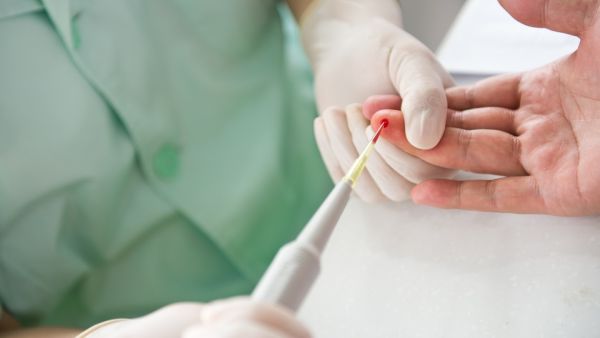Researchers may have developed a new alternative to an old way of detecting cancer.
A new device is capable of screening blood that captures 3.5 times the number of cancer cells as the current method, according to new findings published Monday in Nature Communications. This new device, which was tested in lab animals, may be able to better diagnose and treat humans with cancer.
"Nobody wants to have a biopsy. If we could get enough cancer cells from the blood, we could use them to learn about the tumor biology and direct care for the patients. That's the excitement of why we're doing this," Daniel F. Hayes, a breast cancer researcher at the University of Michigan and study senior author, said in a news release.
Read More
Wearables for Your Health: How Fitbit, Smartwatches Can Save Your Life
Eating Healthy Won't Cost You a Fortune With These 8 Tips
In a single minute, it's possible for tumors to release more than 1,000 cancer cells into the bloodstream. Right now, taking cancer cells from patients requires them to have up to a tablespoon of blood taken in one draw.
That method has limitations because sometimes blood is drawn that contains no cancer cells, even if a patient has advanced cancer. A typical blood sample may contain a total of 10 cancer cells, making the device's potential even greater.
"It's the difference between having a security camera that takes a snapshot of a door every five minutes or takes a video. If an intruder enters between the snapshots, you wouldn't know about it," said Sunitha Nagrath, a researcher at University of Michigan and lead developer of the device.
The new device continuously screens blood over the course of a few hours, straight from a person's vein. This will allow more of their blood to be tested, which will increase the chances of catching cancer cells.
"This is the epitome of precision medicine, which is so exciting in the field of oncology right now," Hayes said.








